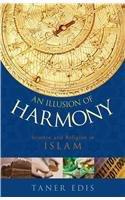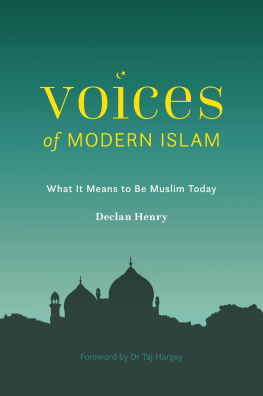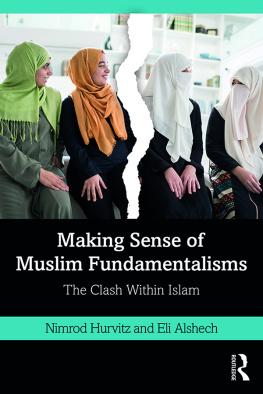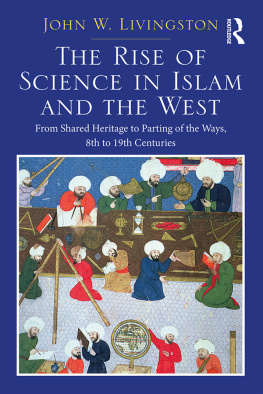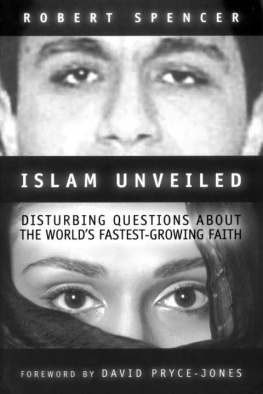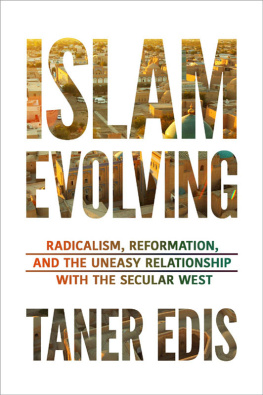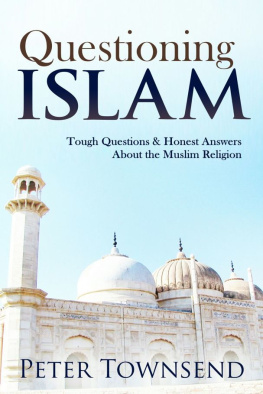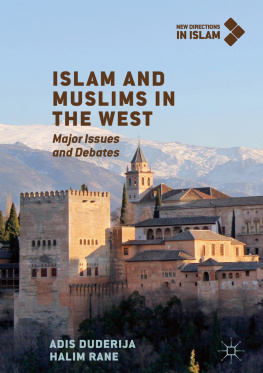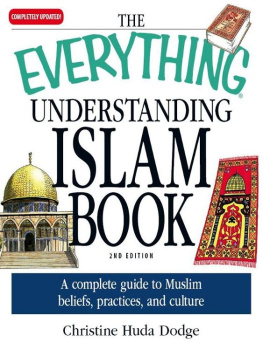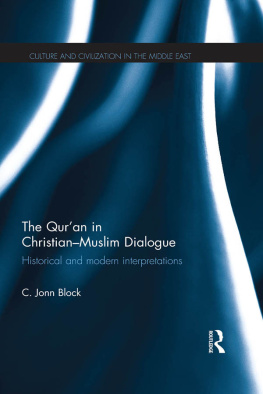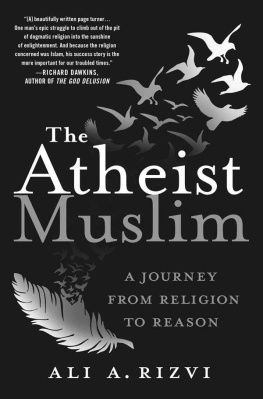CHAPTER 1
TO SEEK KNOWLEDGE IN CHINA
A RELIGION OF REASON
Seek uted to the prophet Muhammad, is known to millions of Muslims all over the world. I first encountered it during my early schooling in 1970s Turkey; I remember a teacher citing it to encourage us to work hard at absorbing the content of our textbooks. My classmates and I were usually more interested in playing outside than in schoolwork, so we must have needed a reminder that our religion honored learning, especially in scientific and technological areas.
I, for one, was certainly fascinated by science. I did not care much about religion, thoughas a child of a secularist Turkish father and a nonreligious American mother, religion was not a significant part of my life as I grew up. My interest in science was nourished by my numerous encyclopedias and childrens science books, not by any sacred literature. We lived in a westernized area of the secular Republic of Turkey, and the public schools were not heavy-handed about Islam. It was understood that about 99 percent of Turkish citizens were Muslims, whether observant or not, but religion rarely intruded into classrooms. The echoes of Islam that we heard usually served the worldly purpose of trying to modernize Turkey. I constantly got the impression that Islam (or at least the Islam the authorities wanted) was supposed to be a rational religion, with no theological obscurantism. In particular, Islam supported science; many people even suggested that Islam was fundamentally a scientific religion. It enjoined believers to seek knowledge, even if it required a trip to China.
Few intelligent students believe everything they hear in school, and I was not entirely impressed with the claim that Islam was a religion of reason. Almost everyone around me believed in supernatural beings and events, but all that struck me as little different than fairy tales. The notion that any book, let alone the Quran, was infallible, miraculous, and sacred seemed strange. And I could never see much reason behind the idea of a God. Still, although it was obvious from early on that I was to remain an incorrigible skeptic, some of the constant insistence that Islam was a uniquely rational religion must have had an effect. I entered my college years convinced that Islam had lagged behind when compared to the political and scientific progress derived from the European Enlightenment. But even as I hoped Islam would progress to become just a cultural coloration fading into the background of a fully modern Turkey, I also thought it was somehow more reasonable than other religions. Didnt Islam at least make more sense than the outlandish fantasies that Christians had to accept? I did not know much about either Islam or Christianitycertainly little about the more sophisticated intellectual traditions they both harbored. But I thought that even if Islam was not scientific, then at least it was a more suitable precursor to the science-based Enlightenment rationalism I had come to identify with.
The jumble of impressions I had about Islam were not all consistent with one another. After all, looking at Turkey, it was easy to perceive poverty and backwardness all around. I grew up in an academic family, in middle-class surroundings, with some of the most thoroughly westernized areas of Istanbul as my neighborhoods. Outside of that small and unrepresentative sample, however, Turkey was simply backward. Our economy was weak and dependent on the industrialized West. Culturally, it seemed Turks did not produce much of note. We looked toward Western examples for ideas about how to do everything. Proper art, clothing, government, civilized behavior, technologythe West was home to all. Turks also had stereotypes of Western Europeans as emotionally cold, exploitative people, but we all knew they had made the modern world. And we wanted, desperately, to be modern.
While worrying about development and hoping that Turkey would once again gain respect in the world, it was hard not to notice that the more intense Muslim religiosity flourished in the poorer, more backward parts of Turkish society. On one hand, there were the orthodox followers of Islamic law, the sharia. Secularists such as I worried about their influence. Constantly caricatured in the secular press as bearded men in medieval dress followed by four veiled wives, the orthodox, we thought, threatened to drag us back to the Middle Ages and to impose their ossified understanding of religion on us all. Never mind developing scientifically, we would not even continue to enjoy basic freedoms if the fans of Islamic law were to have their way. On the other hand, much of popular religion, though much less rigid, was if anything even more superstitious. How, when so many people continued to pray for the intercession of saints or attempted to heal disease by making magic charms out of Quranic inscriptions, could the country catch up with a rapidly advancing Western world where everything depended on science and technology?
My early views about Islam and science were certainly naive, not much more than an intensified version of the conventional wisdom in Turkish secularist circles. In any event, I pursued science in my studies. I have ended up as a physicist who works in the United States, briefly visits Turkey every now and then, and indulges a fascination with questions about science and religion. And now, I find myself thinking more specifically about Islam again.
MUSLIM SCIENCE AS IDEAL AND REALITY
Pronouncements about Islam being a rational, scientific religion are not a peculiarity of 1970s Turkey. All countries with majority Muslim populations face a similar challenge of catching up to the West. For centuries, it has been clear that the Europeans gained an advantage over the lands of Islam because they became able to develop increasingly powerful technologies. Industrial and military production, which appeared to be linked with powerful scientific capabilities, was the key. If Muslims were not to be colonized and relegated to a second-class civilization, they somehow had to appropriate science without losing their cultural identity. Many Muslims sought to help this process along by portraying Islam as a scientific religion. Even in the nineteenth century, the anticolonial thinker and activist Jamal al-Din al-Afghani insisted that the Islamic religion is the closest of religions to science and knowledge, and there is no incompatibility between science and knowledge and the foundation of the Islamic faith. More recently, Sayyid Abul Ala Maududi, a leading Islamist thinker who has been very influential in South Asia, said of the prophet Muhammad that
it was he who, in place of baseless speculation, led human beings to the path of rational understanding and sound reasoning on the basis of observation, experiment, and research. It was he who clearly defined the limits and functions of sense-perception, reason, and intuition. It was he who brought about a rapprochement between the spiritual and the material values. It was he who harmonized Faith with Knowledge and Action. It was he who created the scientific spirit with the power of religion and who evolved true religiosity on the basis of the scientific spirit.
Muslims in Western countries also present Islam as a uniquely rational religion with a powerful intellectual attraction. Jane I. Smith claims that Anglo Americans choose to convert to Islam for a variety of reasons. Some find the intellectual appeal of a great civilization of scholarly, scientific, and cultural achievements a refreshing antidote to the often anti-intellectual and secularist climate of the contemporary West.
Most devout Muslims worry about the relative poverty and lack of power of Muslim peoples. With the exception of some extreme traditionalists and mystics, almost all think that technological development is imperative in order to improve their lot. And so, whether liberal modernists or fundamentalists, Muslims assert that Islam and science not only coexist in complete harmony but that Islam and science mutually support each other. It is unfortunate that in the area of science, the West has leapt ahead of the community of Muslims, the

